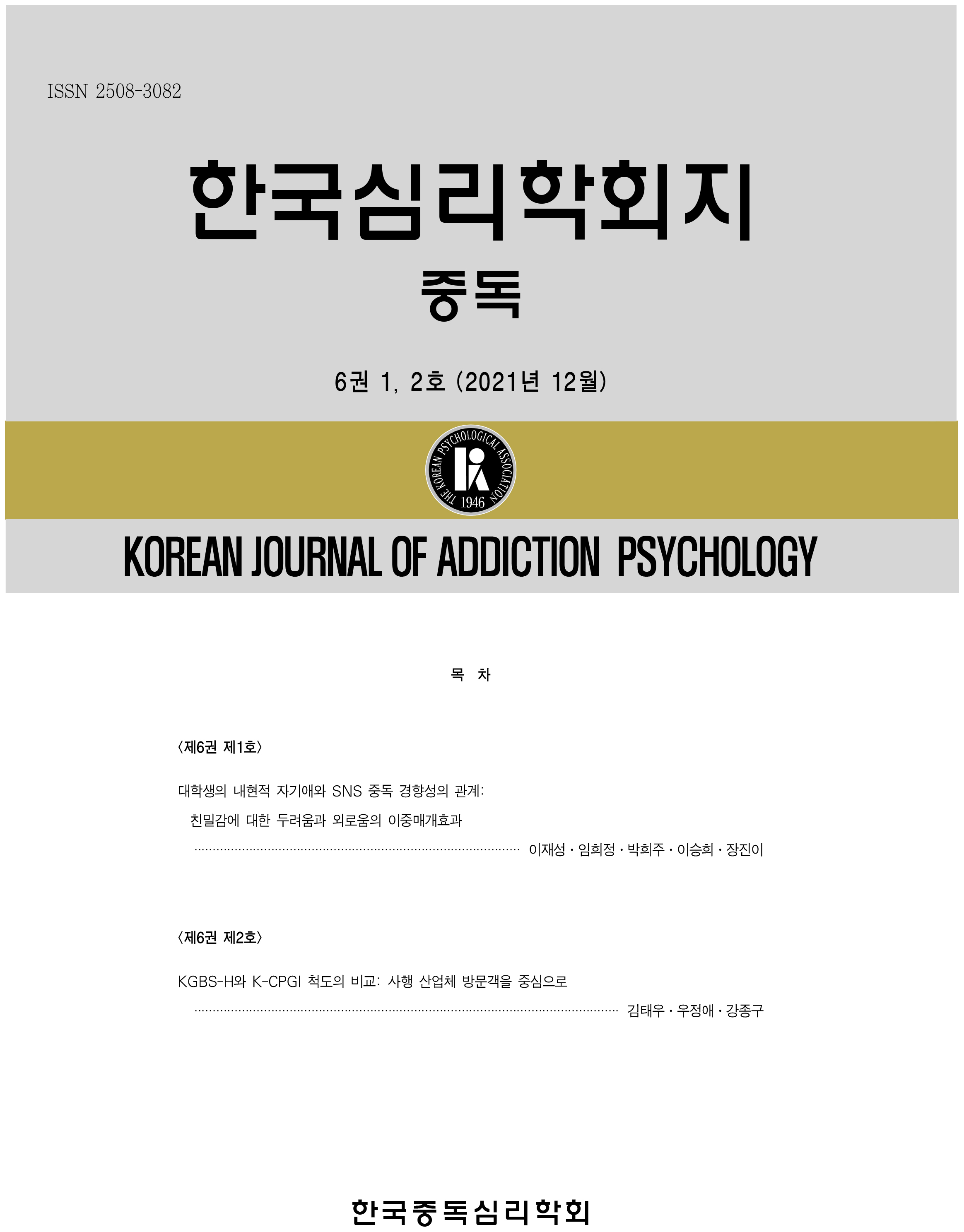Korean Journal of Addiction Psychology
- Log In/Sign Up
- P-ISSN2508-3082
 ISSN : 2508-3082
ISSN : 2508-3082
A comparison of DSM-IV and DSM-5 criteria for Gambling Addiction

Abstract
The purpose of this study is to examine the validity of the amendment contents and directions of the Gambling Disorder diagnosis criteria in the Diagnostic and Statistical Manual of Mental Disorders 5th edition(DSM-5) published by the American Psychiatric Association. Specifically, we examined using domestic data whether it is reasonable to argue that the deletion of the 'legal problems' criterion and the lowering of the cut-off score (5 -> 4) did not affect the prevalence estimate as in the DSM-5 revision committee. To do this, we analyze the satisfactory proportion of 'legal problems' criterion using a part of the adult prevalence data(n=1,323) of Kim et al.(2005) and a part of youth data(n=211) of Kim et al.(2016), and the diagnostic criteria of DSM-IV and DSM-5 were compared for each gender and sampling location. The results were as follows. First, as a result of analyzing the satisfactory proportion of 'Illegal Act' criteria, adults reported a very low score of 2.9%(10th place), males who have a relatively high level of seriousness reported 4.5%, and gamblers reported 7.3%. However, on the other hand, the adolescents reported a higher score of 26.6%(2nd place) than the adults. Second, as a result of the comparison between the diagnostic systems, there were significant differences in all groups except for the female adolescent group. The diagnostic criteria of DSM-5 showed that unlike the claims of experts who participated in the reorganization, the severe group of gambling problems had more unstable characteristics than the DSM-IV to classify more people as addicts. The results of this study were discussed in terms of the limitations of the gambling problem diagnosis criteria and its limited application.
- keywords
- gambling problem, gambling addiction, DSM-IV, DSM-5, diagnostic criteria, validity
- Submission Date
- 2017-04-20
- Revised Date
- 2017-06-02
- Accepted Date
- 2017-06-09
- Downloaded
- Viewed
- 0KCI Citations
- 0WOS Citations
